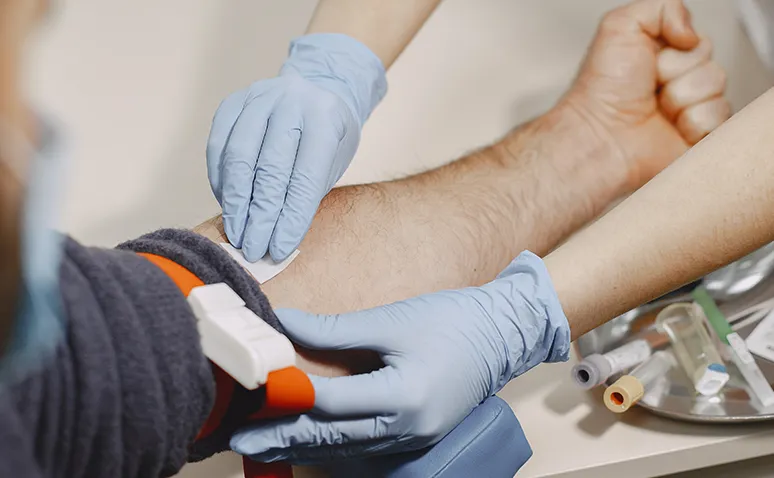Causes of prostate cancer are evaluated across a wide spectrum, ranging from genetic factors to environmental influences. Having a family history of prostate cancer significantly increases the risk of the disease. In addition, the likelihood of cancerous changes in prostate cells increases with age.
Causes of prostate cancer also include dietary habits, which play a significant role in the development of the disease. A diet high in fat and processed foods may trigger cancer formation. Additionally, hormonal imbalances, obesity, smoking, and vitamin D deficiency can contribute to the risk. Prolonged stress and lack of physical activity further strengthen these risk factors.
The main factors that can lead to prostate cancer include:
What Are the Causes of Prostate Cancer?
Prostate cancer is the most common type of cancer among men. It is usually diagnosed at an older age. This disease, which occurs more frequently in individuals over the age of 50, can be successfully managed if detected early.
The prostate is a part of the male reproductive system, producing part of the seminal fluid. When uncontrolled cell growth begins in this gland, prostate cancer may develop.
Although the exact answer to the question “what causes prostate cancer” is not fully known, several risk factors have been identified. Genetic predisposition, hormonal changes, and aging are among the most significant contributors.
In addition, dietary habits, environmental toxins, and obesity can also increase the risk. Changes in the prostate gland can lead to elevated PSA levels. Therefore, the prostate-specific antigen PSA test plays a crucial role in early diagnosis.
The main factors that increase the risk of prostate cancer include:

Symptoms of prostate cancer appear as the disease progresses. The most common complaint is difficulty urinating. This symptom is caused by the narrowing of the urethra due to enlargement of the prostate gland.
Other symptoms may include blood in urine, lower back or bone pain, frequent urination, and waking at night to urinate. After a diagnosis of prostate cancer, the next steps are determined based on the stage of the disease.
In early-stage cases, the active surveillance method may be used, with the patient monitored regularly. In more advanced cases, surgery, radiotherapy, or medication treatments are among the methods used in the treatment of prostate cancer.
How Is Prostate Cancer Diagnosed?
Prostate cancer is a disease that can be successfully managed if diagnosed early. For this reason, it is very important for men of a certain age to undergo regular health check-ups.
Especially individuals with a family history of prostate cancer should be closely monitored, as they are in the high-risk group. Laboratory tests and imaging techniques are used together for diagnosis.
The most commonly used diagnostic methods in prostate cancer include:
When these procedures are evaluated together, the stage and spread of the disease can be clearly determined. In this way, the most appropriate treatment method can be selected for the patient, and the process can begin without delay. Early diagnosis significantly increases the success of treatment while preserving the quality of life.
Frequently Asked Questions
1. Is prostate cancer genetic?
Yes, men with a family history of prostate cancer have a significantly higher risk of developing the disease.
2. Does prostate cancer always show symptoms?
No, in some cases there may be no symptoms in the early stage; therefore, regular screening is important.
3. Is the PSA test reliable in prostate cancer?
The PSA test is helpful in the early diagnosis process but is not sufficient alone to make a diagnosis.
4. Can prostate cancer be prevented?
There is no guaranteed method of prevention; however, eating healthy, exercising, and undergoing regular check-ups are important.
5. At what age is prostate cancer more common?
The disease is usually diagnosed more frequently in men over the age of 50.
6. What does active surveillance mean?
Active surveillance means monitoring low-risk patients with regular check-ups and avoiding unnecessary treatment.
7. Is recovery possible after prostate cancer treatment?
Yes, when diagnosed early and treated appropriately, many patients can fully recover.
To protect your prostate health, you can contact Denge Tıp to schedule regular check-ups.











